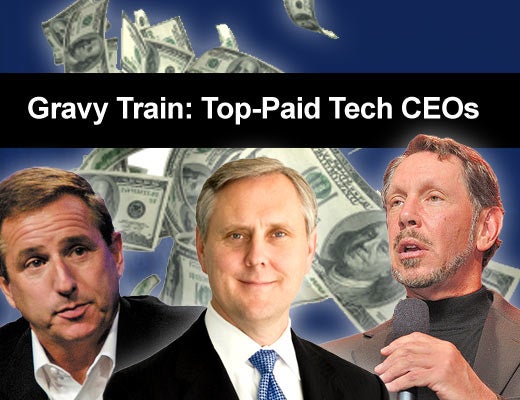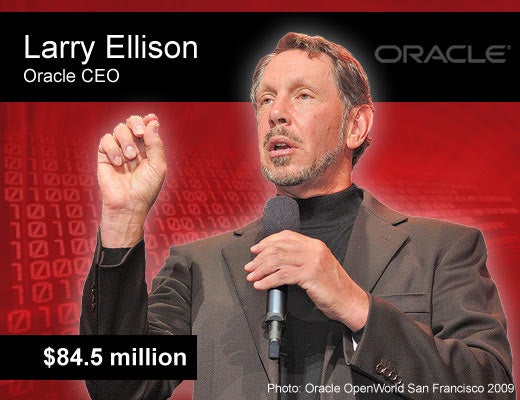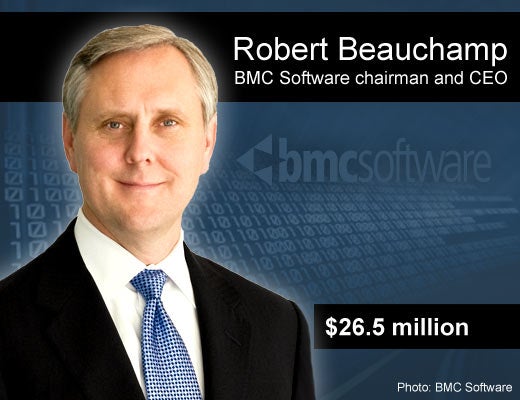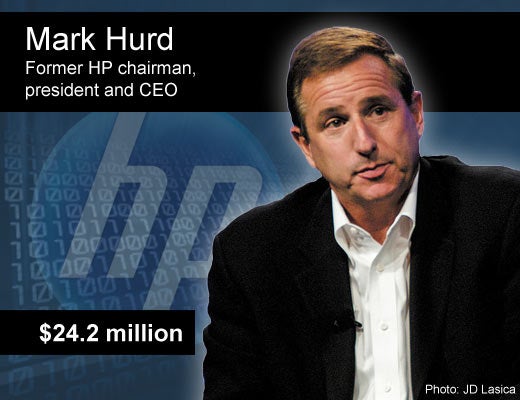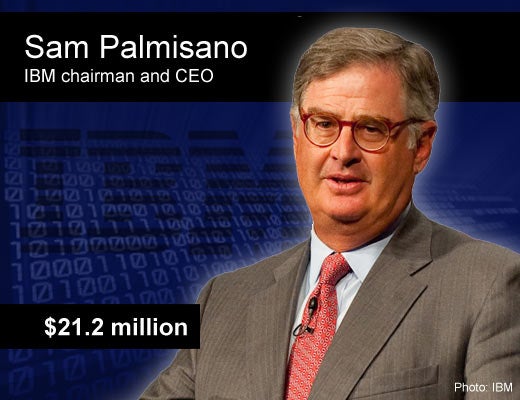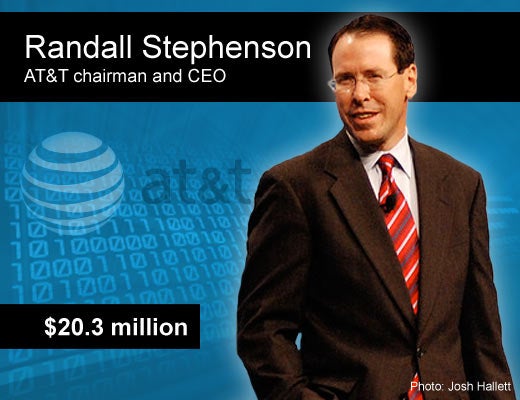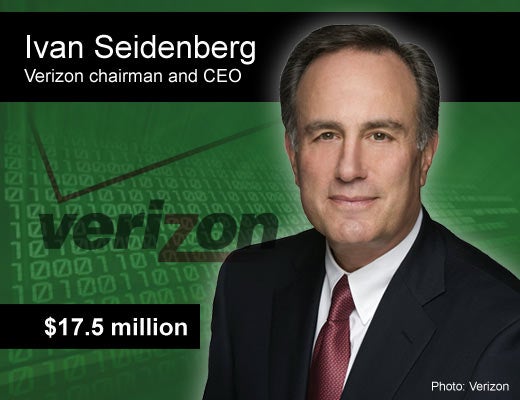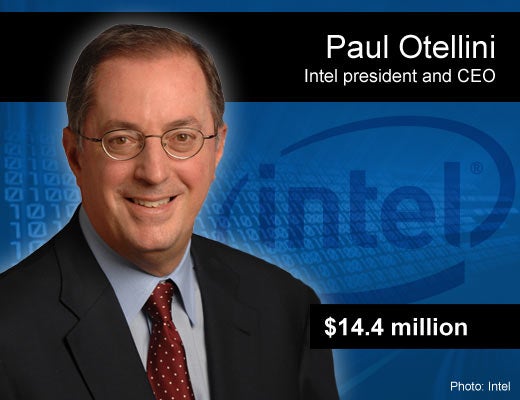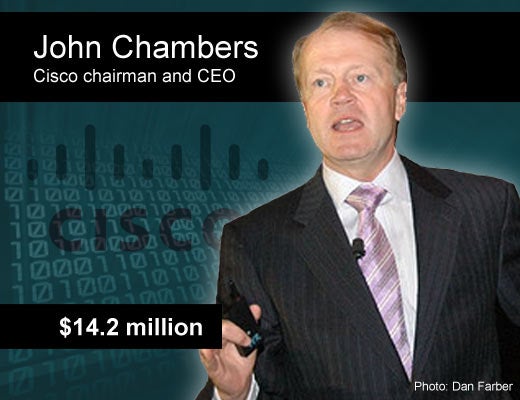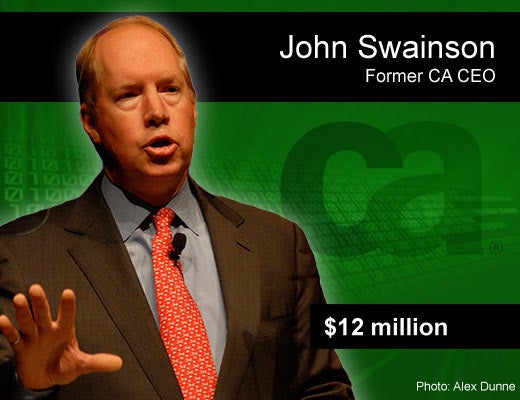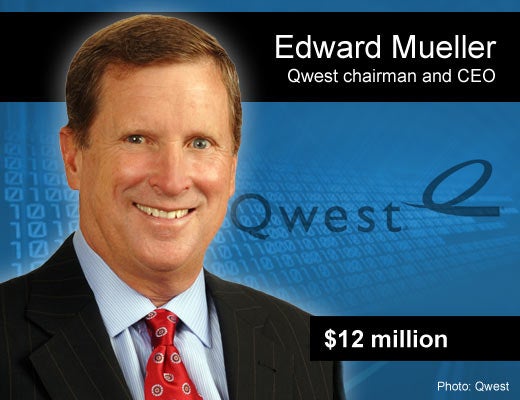Analyst and IT Business Edge blogger Rob Enderle has this to say about executive salaries:
“CEO pay has increasingly become a problem over the last several years as it has drifted well out of line with economic conditions and comparable salaries for the rank and file employees. This excess has been connected to both employee mistreatment and executive misadventure, suggesting that it has crossed the line from asset to liability for many firms. Yet turning this problem around isn’t trivial because executives at this level expect these high payments, even though they should know that they are neither good for them personally nor for their respective companies. It is well past time that this topic should be effectively addressed because it’s beginning to cause the failures of a growing number of top executives.”
Enderle says oftentimes the board is to blame:
“At the source for executive overcompensation are boards largely made up of ex-CEOs who themselves were often overcompensated … There are no repercussions to the board for overcompensation and the boards are compensated as well by the company. The board members are effectively selected by the CEO, leading to what can be an ugly cycle of self-indulgence.”
Perhaps a good example of this can be seen with the recent resignation of HP CEO Mark Hurd. He was forced out after board members discovered he had falsified expense reports. Indeed, Don Tennant is unsure “about whether it’s Hurd or the HP board that’s more inept in terms of leadership.”
Aside from the board’s role in supporting extravagant executive compensation, the economic climate took its toll on many tech CEOs’ compensation, but not everyone was hurting. Take a look at technology’s top 10 highest-paid executives in 2009.
Click through to view the 10 highest-paid tech CEOs in 2009.
- Oracle’s fiscal 2009 fourth quarter profits grew to $2.4 billion, or 46 cents a share, from $1.9 billion, or 38 cents a share, the same period a year ago. Revenue rose 39 percent to $9.5 billion from $6.9 billion a year ago.
- Oracle has made several recent acquisitions, including Massachusetts-based Phase Forward, database security vendor Secerno, and eServGlobal's Universal Service Platform.
- BMC reports that fiscal 2011 first quarter total revenue was $461 million, up 2 percent from the year-ago period.
- Beauchamp explained to Bloomberg Businessweek’s Katie Hoffman why BMC revenues have grown throughout the economic downturn compared with its competitors:
“Software is less than 3 percent of revenues for Hewlett-Packard. It's 100 percent of ours. We wake up every day, the entire company, focused on software management. Our larger competitors have to focus on the other 97 percent of their business.”
- In its second quarter of 2010, HP reported profit of $2.2 billion, or 91 cents a share, compared with a profit of $1.7 billion, or 71 cents a share, in the period a year earlier. Revenue grew to $30.8 billion from $27.4 billion a year ago.
- As we reported earlier this year, Hurd's compensation package was valued at $24.2 million, but his total compensation was down 29 percent from the year before.
- IBM’s revenue rose 2 percent to $23.7 billion in the second quarter of 2010. Net profit slightly exceeded expectations, rising to $3.4 billion, an increase of 9 percent or $2.61 a share, from $3.1 billion, or $2.32 a share, a year earlier.
- In May, IBM CEO Samuel J. Palmisano pledged to double last year’s performance by 2015 and to spend $20 billion in acquisitions expected to be concentrated in business analytics and optimization.
- AT&T announced a 26 percent increase in profit during the second quarter of 2010. It reported earnings of $4 billion, or 68 cents a share. Revenue was $30.8 billion.
- In January, AT&T announced that it added 2.7 million wireless customers and activated 3.1 million iPhones. The iPhone total was the second highest in any quarter since the devices launched.
- Verizon reported it lost $198 million or 7 cents a share in the second quarter of 2010, down from income of $1.48 billion, or 52 cents a share, in the same quarter a year ago. Revenue dropped 0.3 percent to $26.77 billion.
- Seidenberg has proclaimed that Verizon would like to offer the iPhone, but rumors of such an offering have failed to materialize.
- Intel reported net income increased 288 percent to $2.4 billion for the quarter that ended March 27, 2010. Revenue was up 44 percent over the quarter a year ago to $10.3 billion.
- Intel recently reached a settlement with the FTC over anticompetitive allegations. As part of the settlement, Intel says it will not pay computer makers to shun rivals' chips or retaliate against them when they do pick competing products.
- In the third quarter ending May 1, 2010, Cisco reported a 63 percent rise in net income to $2.19 billion, or 37 cents a share, from $1.35 billion, or 23 cents a share, a year earlier. Sales grew 27 percent, to $10.4 billion.
- Chambers has been optimistic about the company’s performance, and says there are plans to hire 3,000 people in the coming months.
- CA has been on an acquisition spree this year, picking up Oblicore, Nimsoft and 3Tera. Still, company restructuring will lead to the shedding of 1,000 jobs.
- Tom Kendra, executive vice president for Enterprise Products and Business Line, CA Technologies, says IT organizations can expect to see CA Technologies advance on two fronts: strategic tools for managing both public and private cloud computing platforms and a suite of more tactical tools for optimizing virtualization software across the enterprise.
- According to the Denver Business Journal, Qwest struggled in the second quarter of 2010. Not only did it lose another 700,000, or 12 percent, of its residential lines to mobile phones and Internet calling over the past year, but its revenue dropped 5.2 percent to $2.9 billion, down from $3.1 billion in 2009.
- In April, it was announced that Louisiana-based CenturyTel has agreed to acquire Qwest in a $10.6 billion stock swap. It is unclear what this will mean for Mueller.


